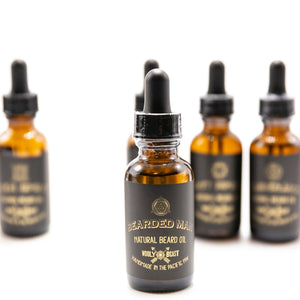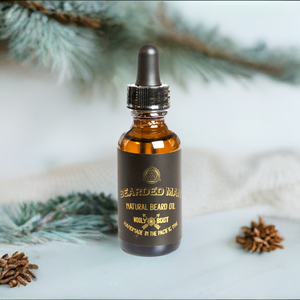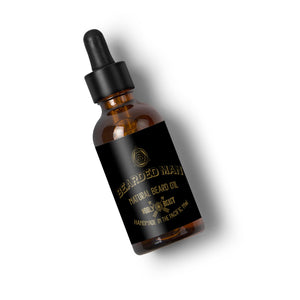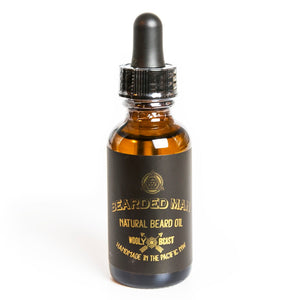I've always had trouble getting to sleep. Now, after 3 kids, I can also add 'frequent waking up' to the mix of sleep issues. It turns out that I was the one who had actually been sleep-trained (something called Postnatal Insomnia as it turns out). I started to wake up every 2-3 hours every single night whether baby did or not which feels like one of the most frustrating things ever. I found myself laying there screaming (in my head, of course) "THE BABY IS SLEEPING! WHY IN GOD'S NAME ARE YOU AWAKE!?" And of course the more that I thought about it, the more anxiety that I would have. And the more anxiety that I had, the harder it was for me relax and sleep. It's one big nasty cycle. But here's the good news! I've discovered a way to get out of it!

Okay, so this isn't a quick fix. Sorry, I'm sure you were hoping for some sort of epiphany like "just rub some crushed up charcoal into the palms of your hands and you'll have the best sleep of your life." Nope. Let me be clear. This.Is.A.Process. On the bright side, if you do all of these steps you're 98% more likely to be sleeping better in only a few weeks time.
I always disliked using any un-natural remedies. I've tried em'....oh, believe you me, I have. But hallucinogenic experiences where you're half asleep and think that the room is moving don't count as good sleep to me so I've written these "magical" pills off. If you're like me and try to avoid the possibility of very un-fun hallucinations and maybe even an addiction to these pills, you will be willing to try anything (in the realm of natural).
I am not an expert in sleep by any means, but I have done A LOT of research. The majority of these tips are well-documented in the field of sleep studies and alternative medicine.

Why is sleep so important?
Getting good sleep plays a vital role in your mental and physical health, nutrition, and safety throughout your lifetime. In fact, many experts say that it's even more important than diet and exercise.
-
Sleep helps your brain functioning: Sleep improves learning, consolidation of memories, creativity, problem solving, attention, and decision making.
-
Sleep helps your mental health: Sleep improves your ability to better cope and regulate your emotions.
-
Sleep helps your physical health: Sleep helps to heal and repair your heart and blood vessels.
-
Sleep balances your hormones: Hormones tell you when you're full/hungry, regulate your blood sugar, boost muscle mass, and help repair cells and tissues, and play a role in fertility.
- Sleep Improves Your Immune System: Your immune system relies on sleep to keep you healthy and to fight infections.

What happens when you don't get good sleep?
After only several nights of losing sleep (just 1–2 hours per night even), your ability to function suffers as if you haven't slept at all for a day or two!
-
An Increase In Mental Health Issues: Sleep deprivation is linked to depression, suicide, and risk-taking behavior.
-
Sleep Deprivation Impacts Physical Health: Sleep deprivation is linked to an increased risk of heart disease, kidney disease, high blood pressure, diabetes, and stroke.
-
Disruption of hormones: Hormone issues can lead to increased risk of obesity and weight gain, higher than normal blood sugar level, which may increase your risk for diabetes, and fertility issues.
-
A lack of sleep can change the way in which your immune system responds:. Sleep deficiency makes it difficult for your body to fight common infections.
- Productivity is diminished: Work and school performance suffers when you are sleep deprived. It takes longer to finish tasks, you have a slower reaction time, and you make more mistakes.
- Lack of sleep also may lead to Microsleep: microsleep are brief moments of sleep that occur when you're normally awake. The scary thing is that you can't actually control it. Have you ever noticed that you've forgotten part of your trip when driving in the car? If you have done this, you have probably experienced microsleep.
- Sleep deprivation can be dangerous: Studies show that sleep deficiency negatively impacts your driving ability as much as, or more than, being drunk! It's estimated that driver sleepiness is a factor in about 100,000 car accidents each year, resulting in about 1,500 deaths. It can also cause more large-scale damage. Sleep deficiency has been known to play a role in disasters such as nuclear meltdowns!

Here are my recommendations for getting to bed and staying asleep (naturally):
Day Time: Getting good sleep at night actually begins with what you do during the day.
- Change your diet*: Eat a healthy diet high in antioxidants, good fats, and quality proteins around four hours before bed. Avoid sugar and caffeine eight hours before bed.
- Use Supplements*: Many people are deficient in Magnesium. Some people find that just adding a product like Natural Calm about 30 minutes before bedtime can really improve their sleep. Another vital supplement is Omega 3. You can get it through quality fish oil like this or, if you're vegan, you can get it through your diet.
- Drink enough water: make sure you're getting enough water throughout the day and stop drinking water 2-3 hours before bed so you're not waking up to use the restroom.
- Get at least 30 minutes of sunlight/day: This wide-spectrum light during the day boosts serotonin levels, and helps to improve melatonin levels at night.
- Get at least 30 minutes of moderate-intensity aerobic exercise/day: You can even 'kill two birds with one stone' by going on a walk outside in the sunlight.

Night Time: Once the sun begins to set, there are some important steps you can take towards better sleep.
- Establish a sleep routine and STICK WITH IT: Mine includes a candlelit warm bath and relaxing music, reading a book to my children, turning the lights off, telling my kids a story, and then listening to this relaxing podcast.
- Get rid of the blue light: wear some blue-blocking glasses or purchase amber lights (or, if you're on a limited budget, just turn off all media and lights and use a lot of candles to light your space! Straight up old school-style).
- Avoid alcohol, nicotine, and caffiene: avoid these substances before bed (caffeine can stay in your system for up to 8 hours). Alcohol consumption may help you fall asleep due to an increase in adenosin (a sleep-inducing chemical in the brain). But it subsides as quickly as it came, making you more likely to wake up before you’re truly rested.
- Go to bed and wake up around the SAME TIME EVERY SINGLE day: (even on the weekends). You can set up "Bedtime" on your iphone if it helps you to stay on task.
-
Avoid using media or screens 4-5 hours before bed: At the very least, DO NOT watch tv or use your phone in your bed. It gives your brain the wrong sleep association.

- Write it down: Make a habit of journaling before bed. You can express your thoughts, feelings, and even your to-do list for the next day. This helps to "cleanse you pallet," so to speak, before you drift off. It allows your mind to say, "okay, it's time to shut down."

Setting The Mood: Creating the right sleep environment is key.
- Get rid of ALL unnatural light in your room: We use blackout curtains like this and cover any lights with tape. If you must have a nightlight, you can get an amber one like this.
- Keep it cool: Keep your sleeping space cooler than 70 degrees.
- Use white noise: white noise machines that produce sounds like rain or an ocean help to block out any extraneous noises. I really like this machine for my practice as well as for in my sleeping space.
- Listen to something relaxing: listen to or mentally repeat some thing relaxing such as music, chanting, meditation, prayer, and/or an episode of Nothing Much Happens (bedtime stories for adults). Side note: we love NMH so much that we partnered with them to create a series of seasonal bedtime candles like this one called Winter Walk.
Above all, make sleep A PRIORITY. You deserve it!
Have a natural sleep remedy that works for you? Leave comments below if there is something that I missed in regards to natural sleep remedies.
*Always consult with a healthcare professional before starting a new diet or taking any supplements.








